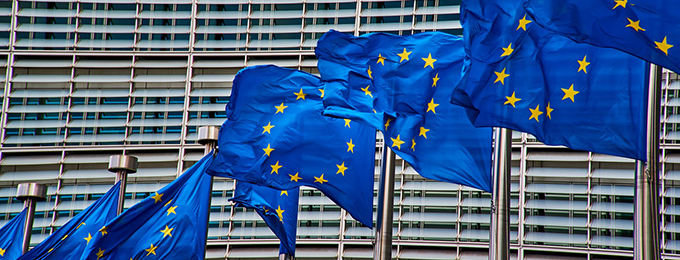The European Commission moves to strengthen synergies between EU and national funding programmes for research and innovation.
The European Commission (EC) has adopted further measures to facilitate synergies between national and EU funding of research and innovation projects. By extending the scope of the so-called General Block Exemption Regulation (GBER), the EC allows Member States to implement certain aid measures without prior Commission scrutiny. In particular, national authorities will now have the permission to provide direct support to certain projects funded by Horizon 2020, Horizon Europe and InvestEU. This will facilitate quick implementation of such measures by Member States.
EU competition law generally prohibits state support to private or public undertakings that may distort competition and undermine the functioning of the single market. Any state aid that is conferred selectively, that gives an advantage distorting competition, and that affects trade between EU Member States, must be notified to the EC and can be implemented only after EC approval. The 2014 GBER exempts certain categories of state aid from this requirement of prior notification, when the benefits to society outweigh the possible distortions in competition that the aid may cause to the Single Market.
The research and innovation related categories exempted include:
- financing and investment operations supported by the InvestEU Fund;
- research, development and innovation (RD&I) projects having received a “Seal of Excellence” under Horizon 2020 or Horizon Europe;
- co-funded research and development projects or Teaming actions under Horizon 2020 or Horizon Europe; and
- European Territorial Cooperation (ETC) projects, also known as Interreg.
National authorities can now directly implement funding or co-funding of such projects without prior notification to the EC, which only has to be informed ex-post. Exempting aid in these areas is possible thanks to the safeguards embedded in EU programmes. In particular, the support granted in the context of these programmes: (i) targets a common interest objective; (ii) addresses a market failure or socio-economic cohesion objectives; and (iii) is limited to the minimum amount necessary.
These latest amendments to the state aid rules constitutes part of the EC’s broader effort to improve synergies between EU funding instruments and programmes and national and regional funding. The goal is both to increase social and economic impact, and to advance EU priorities, such as the twin digital and green transitions and the recovery from the coronavirus pandemic.
Indeed, with the amendment of the GBER, the EC also creates further possibilities for Member States to provide aid needed for the twin transition in a way that will allow them to rapidly support companies in need for funding to combat the economic effects of the coronavirus pandemic. The relevant categories of aid are:
- aid for energy efficiency projects in buildings;
- aid for recharging and refuelling infrastructure for low emission road vehicles;
- aid for fixed broadband networks, 4G and 5G mobile networks, and certain trans-European digital connectivity infrastructure projects and certain vouchers.
In addition to the extension of the scope of the GBER adopted today, the EC has launched a new revision of the GBER aimed at streamlining state aid rules further in light of the EC priorities in relation to the twin transition. Member States and stakeholders will be consulted in due course on the draft text of that new amendment.

